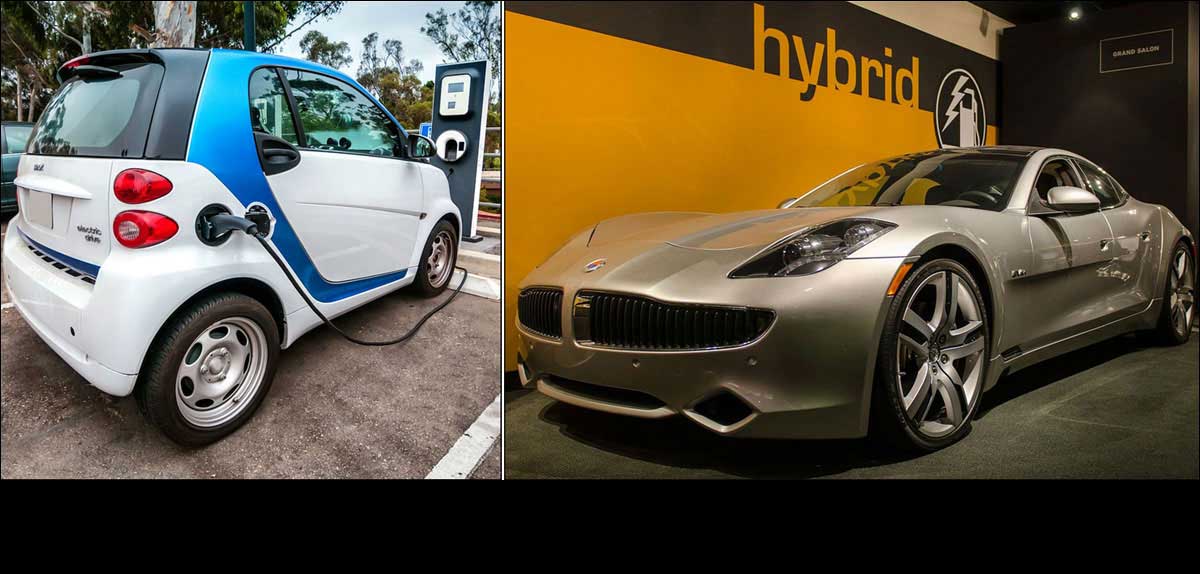[ad_1]
The debate between Electric Vehicles (EVs) and Hybrid Vehicles continues to evolve as global and domestic markets navigate the challenges and opportunities presented by these innovative technologies.
Electric Vehicles (EVs) and Hybrid Vehicles represent two significant advancements in automotive technology aimed at reducing emissions and promoting sustainability. EVs run solely on electricity, while Hybrids combine an internal combustion engine with an electric motor. Both have gained traction in recent years as alternatives to traditional gasoline-powered vehicles.
However, amidst the growing interest in eco-friendly transportation options, a debate persists over which technology holds the upper hand in terms of sustainability and practicality. In this discussion, we’ll delve into the differences between EVs and Hybrids to evaluate their respective strengths and weaknesses, ultimately aiming to determine which option is better suited for the road ahead.
According to a report by JM Financial Institutional Securities, the global shift toward electrification, previously fueled by robust electric vehicle sales, is currently displaying indications of growth moderation, despite supply chain normalization and price reductions by OEMs.
Difference between EV and Hybrid Vehicles:
1. Power Source:
- Electric Vehicles (EVs) are powered solely by electricity stored in rechargeable batteries. They do not rely on an internal combustion engine.
- Hybrid Vehicles combine an internal combustion engine with an electric motor. They can operate using either the gasoline engine, the electric motor, or a combination of both.
2. Emissions:
- EVs produce zero tailpipe emissions since they do not burn fuel.
- Hybrids produce lower emissions compared to traditional gasoline vehicles but still emit pollutants from the combustion engine.
3. Range:
- EVs typically have a limited range on a single charge, which varies depending on the vehicle model and battery capacity.
- Hybrids have a longer range compared to EVs since they can rely on the gasoline engine for propulsion, eliminating the range anxiety associated with EVs.
4. Fuel Efficiency:
- EVs are highly efficient in terms of energy consumption since they convert a higher percentage of stored energy into motion compared to internal combustion engines.
- Hybrids offer improved fuel efficiency compared to conventional gasoline vehicles, especially in city driving conditions, due to their ability to utilize regenerative braking and electric power at low speeds.
5. Charging vs. Refueling:
- EVs require charging from an electric power source, which can take several hours depending on the charging infrastructure and the vehicle’s battery capacity.
- Hybrids can be refueled at traditional gas stations like conventional vehicles, offering convenience and eliminating the need for extensive charging infrastructure.
6. Cost:
- EVs typically have a higher upfront cost compared to Hybrids due to the expensive battery technology.
- Hybrids generally have a lower upfront cost compared to EVs but may incur higher maintenance costs due to the complexity of dual powertrains.
Understanding these differences can help consumers make informed decisions based on their specific needs and preferences regarding sustainability, range, fuel efficiency, and cost.
Is the EV Race Losing Momentum?
Leading global automakers such as Mercedes, Ford, GM, and VW are reducing their investments in electric vehicles (EVs) and shifting their focus toward hybrids. This strategic shift is driven by changing consumer preferences and challenges such as inadequate and slow-paced expansion of charging infrastructure. Analysts suggest that India is experiencing a similar trend.
Tata Motors recently lowered its estimates for electric vehicle (EV) sales and reduced prices in a bid to encourage adoption, citing similar obstacles. Meanwhile, MSIL (Maruti Suzuki India Limited), with its technology-agnostic approach encompassing hybrids, EVs, CNG, flex-fuel, among others, is strategically positioned and diversified amid the deceleration in the pace of electrification, according to the report.
Reports suggest that Maruti Suzuki India Limited (MSIL) has a robust pipeline for launching hybrid models in the coming years, with plans to introduce five new models within the next 2-3 years. The potential for tax rationalization on hybrids could further incentivize consumers to opt for this powertrain option, potentially shifting preferences in the market. Until last year, global electric vehicle (EV) sales consistently surpassed supplies, partly due to semiconductor shortages, resulting in record levels of orders for original equipment manufacturers (OEs). However, despite the normalization of the supply chain, the pace of electrification appears to have slowed down.
Amidst a Price Reduction Competition:
Despite reductions in electric vehicle (EV) prices by manufacturers such as Tesla and Ford aimed at stimulating broader adoption, the efforts seem insufficient. Global automakers like Mercedes, Ford, GM, and VW have postponed investments in EV-related ventures, and have revised down their EV sales projections, signaling a slowdown in the growth of EVs in the foreseeable future, according to the research. Some of these automotive original equipment manufacturers (OEMs) are redirecting their attention to hybrids in response to changing consumer preferences.
Domestic Electric Vehicle (EV) Market Dynamics
The situation in the domestic market for electric passenger vehicles (PVs) mirrors the global trend. Recently, Tata Motors, holding a significant market share of 73 percent, revised its FY24 EV sales projection downward by 20 percent to 75-80K units. Additionally, Tata Motors implemented price reductions of up to Rs 125K per vehicle in an effort to encourage broader adoption. According to the report, the sluggish pace of EV adoption in the domestic market can be attributed to two primary factors: the inadequacy of charging infrastructure and consumer reluctance to pay a premium over internal combustion engine (ICE) vehicles.
Maruti Suzuki India Limited (MSIL) is currently engaged in the development of various technologies, including hybrids, electric vehicles (EVs), flex-fuel, and bio-gas, alongside its existing internal combustion engine (ICE) and compressed natural gas (CNG) technologies. The company holds the belief that multiple technologies can coexist in the medium-to-long term. This approach, characterized by its technological agnosticism, is carefully considered, as it avoids the commitment of resources to a single technology, according to the report.
In conclusion, the debate between Electric Vehicles (EVs) and Hybrid Vehicles continues to evolve as global and domestic markets navigate the challenges and opportunities presented by these innovative technologies. While EVs offer zero-emission driving and are increasingly efficient, hybrids provide a bridge between traditional combustion engines and electric power, offering flexibility and range. Factors such as sustainability, range, fuel efficiency, cost, and infrastructure play crucial roles in determining the viability and adoption of these vehicles. As we consider the future of automotive technology and sustainability, which option do you prefer: Electric Vehicles (EVs) or Hybrid Vehicles?
Share your thoughts and preferences in the comment section below!
In case you missed:
Maqvi News #Maqvi #Maqvinews #Maqvi_news #Maqvi#News #info@maqvi.com
[ad_2]
Source link












































